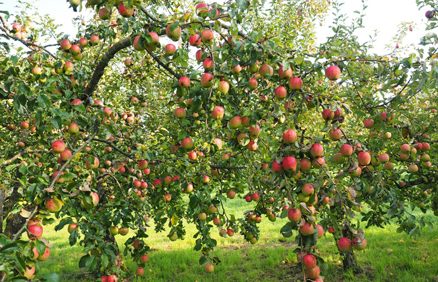Uprooting a tree that sprouted on its own

This abstract discusses if it is forbidden to uproot a tree that sprouted on its own
At times, due to various weather conditions, seeds from trees "sow" themselves among the other plants and trees in the garden, and with time these seeds sprout and grow into new fruit trees. When fruit trees sprout in places they are not intended to be, they often encroach on the existing plants in the garden, as these trees could shade areas needing sunlight or monopolize water sources. Is it possible to uproot such self-seeding trees?
The poskim are divided if the prohibition of destroying fruit trees applies also to trees that sprout on their own, as opposed to those planted by people. The poskim who permit uprooting self-seeding trees maintain that they are not even considered fruit trees, and that it would be permissible to uproot them even if they do not do any damage to their surroundings. Other poskim hold that it would be permissible to uproot such trees only if they harm their surroundings, in which case uprooting them would not constitute destruction.
It is possible that the dispute revolves around the following fundamental issue: is the definition of a fruit tree in relation to the prohibition against destruction an objective definition—unrelated to a person's opinion—meaning that he cannot change its status from a fruit-bearing tree to a non-fruit bearing tree based on his view of the tree? Or, alternatively, this is a subjective definition, where a person's thoughts and perspective on the tree can change its status from fruit tree to a non-fruit bearing tree?
In practice, since the poskim are in dispute as to whether the prohibition against destroying fruit trees applies to self-seeding trees—and whether such trees can be defined as a non-fruit bearing tree (in which case there is no prohibition whatsoever), or a fruit tree (which is permitted to uproot only when damaging its surroundings)—such trees can be uprooted by a non-Jew.
For the full article, see here.




